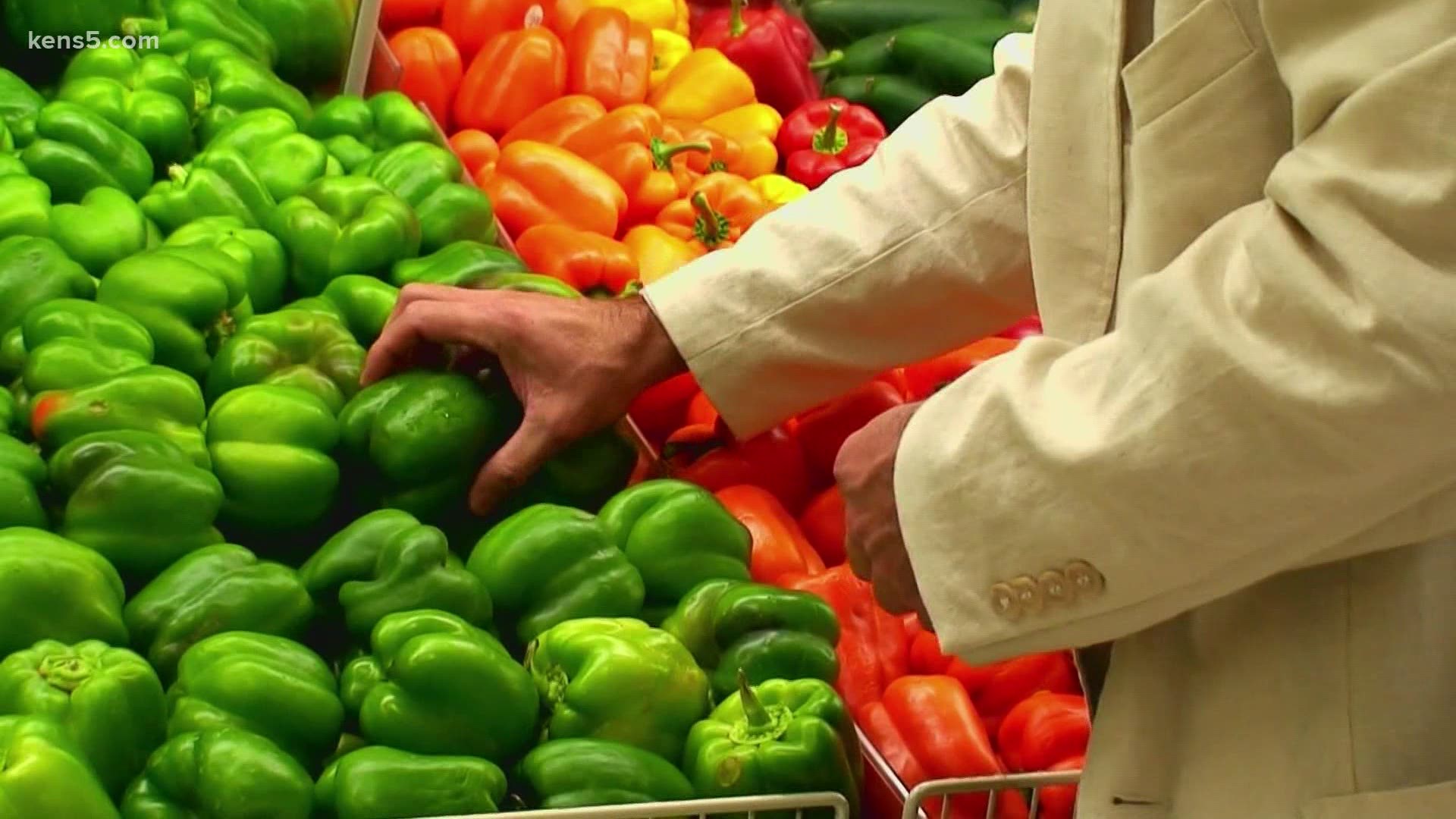SAN ANTONIO — Like many of us, Carey Anderson is at home more due to the ongoing coronavirus pandemic—so much so that the retail company district manager has found a new hobby in recent months.
“Anything called a cookie or any type of ice cream. Those are my favorite pastimes,” Anderson said.
His sweet tooth, though, has led to some extra weight.
“Probably gained a good 15 to 20 pounds since COVID,” he said.
He's not new to dieting...or to ditching a diet.
“I’ve done a vegan diet at one point," he said. "I actually did that for a year. I’ve done low-carb diets. I haven’t tried Keto, but I’ve done some Keto dishes. It’s really hard to be consistent with it. It’s easy to get really discouraged if you don’t
(know) if it’s really working.”
A health condition creates an extra eating challenge for Anderson.
“I found out I had Type 2 diabetes,” he said. “I was doing a good job of managing it, however, this is what happened: I was managing it with diet and exercise, but then the gym closed.”
He is now trying a DNA-based diet from Genopalate. The test kit asks you to swab your cheek and then drop the sample in the mail.
“It was really easy,” Anderson said.
The results take a few weeks to come back. The report he will receive includes recommendations for the quantities of fat, protein, sugar and carbohydrates he should intake, as well as which vitamins and minerals. He will also get a list of 100 foods from which he can benefit by eating.
“It’s really the starting point of a journey versus the endpoint,” said Sherry Zhang, the founder and CEO of GenoPalate.
Zhang created the DNA test to help people eat healthier by better understanding which foods are best for their individual bodies. She makes it clear Genopalate is not a diagnostic tool or treatment; it's one part of a healthy lifestyle.
Zhang said genetics play about a 30% role in weight, while behavior plays 40%.
“We hear a lot of different trends all the time,” she said. “People are being bombarded. It’s making the decision-making even harder.”
She said the DNA test can help people looking to lose weight make decisions about food that are science-based. It can take some of the experimenting out of healthy eating.
“If you drink coffee. we have insights for how slow, how fast you are metabolizing your caffeine, your cup of tea or coffee, alcohol,” Zhang said. “We also touch upon lactose intolerance. So we have insights for lactose intolerance or tolerance and sensitivities or gluten sensitivities. We also provide you your personal ranked food list that you can use to shop for your genetic nutrition.”
Zhang said she studied obesity for more than a decade and saw people living in the same household had different responses to food, which is why she created the test.
“Each of us are born into this world with nutritional ancestry,” she said. “Those are the genetic codes that our ancestors figured out for us during the 2.5 million years of evolution.”
Zhang said she tested the kit on herself.
“I have a principle that I will not let other people try our products until I’m confident and proud of it,” she said.
Test kits range from $40 to $180. The less expensive plans allow you to upload your data already on 23andMe or AncestryDNA. Other plans include the kit to do your DNA analysis. You can also get recipes with your kit. Zhang said the company offers continued support to clients through newsletters.
“Do you think you are counting your carbs?” Jennifer Wimpee, a dietitian and diabetes nutrition educator, asked a client during a phone consultation.
Wimpee said some people might find the DNA test useful, but everyone basically has the same general nutrition needs.
“What I saw was exactly what we recommend towards our patients and clients,” she said after reviewing a sample report. “So keeping your saturated fat less than 10%, limiting your sugary foods, making sure you’re getting high-fiber foods. The reason people want something like this is because they like rules and regulations; however, it’s nothing new. Nutrition really hasn’t changed over the years.”
She said the results could be limiting for some people.
“It’s not going to give you the whole gamut because it lists 100 foods that are good for you,” Wimpee said. “There’s a lot more than 100 foods out in the world. So it might give them a list where they might not actually try eating other foods that are not on the list.”
She said another draw back could be the level of support offered after getting results.
“You’re just getting information,” Wimpee said. “No one is sitting down with you and going over with you what this actually means and how you can make it work for you. I think you get five recipes with it. I mean, I want to have more than five recipes in my list.”
Anderson said his drive to take off the weight has changed. He is ready to ditch his quarantine 15. He wants to see if a personalized food list will help him slim down.
“You know, sometimes the food is just like really bland and not very tasty,” he said.
He knows he will have to do without the sugary, tasty treats he loves. Yet he is encouraged the results will provide him with some delicious and healthier alternatives.
Before starting any diet, make sure you consult your doctor first to find out what is best for you.

